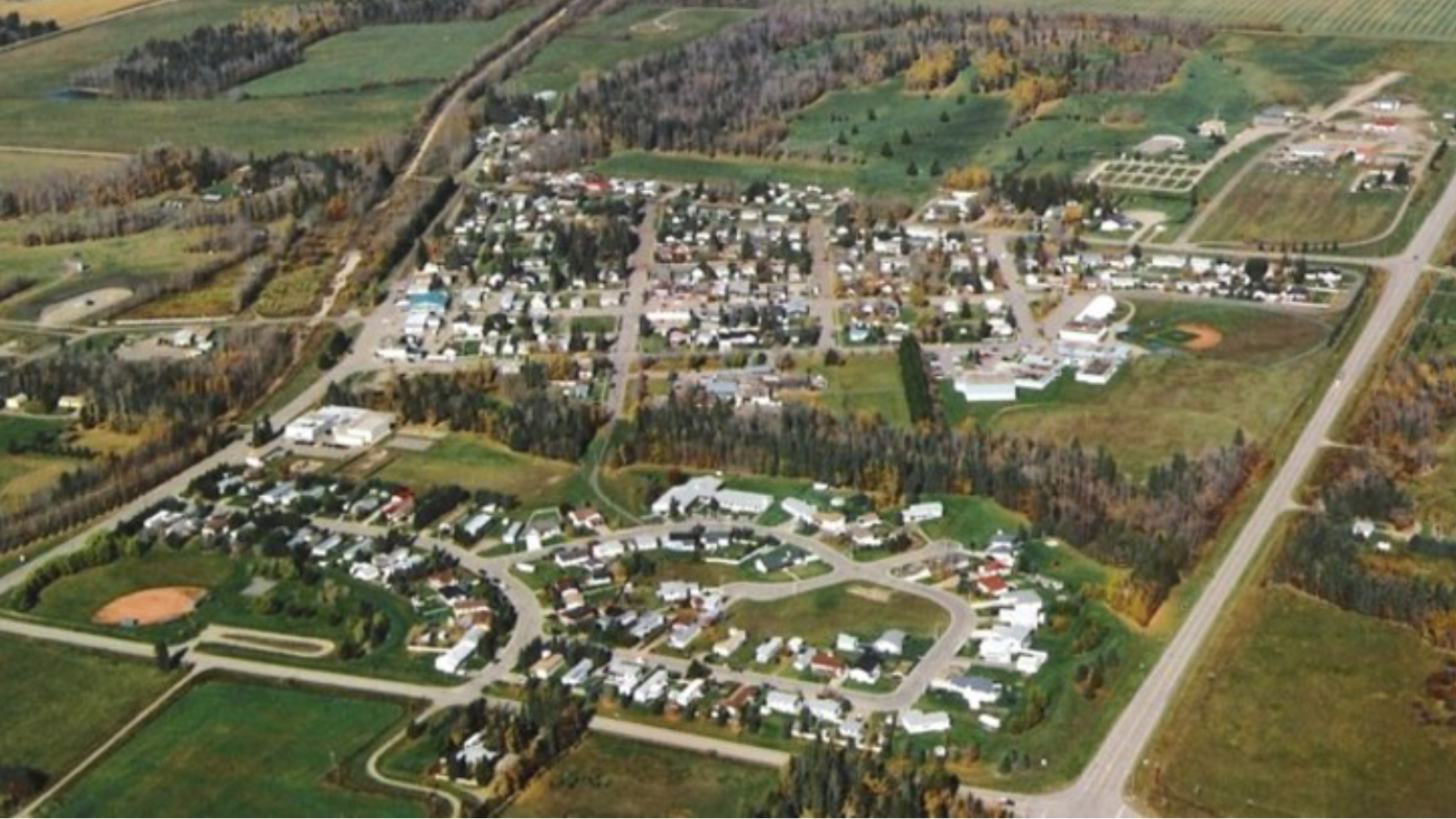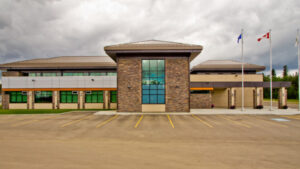The Breton area of Brazeau County will be home to approximately 300 more jobs in the near future, if a new hydrocarbon recycling facility goes ahead as planned.
Fiscal Energy Corporation has plans to develop the $100 million facility in the east end of Brazeau County. The company held a pair of open houses last week to speak to the landowners in the area.

Firearms repair and maintenance
Share on facebook Facebook Share on email Email Share on linkedin LinkedIn Share on whatsapp
Brian Gibbons, Vice President of Fiscal, says they have three sites that they are considering for the plant. Gibbons says they plan to locally source companies to help with the construction of the plant as well.
“At the core of what this technology is about, is to remove the hydrocarbon contamination from soil and other materials,” says Gibbons.
The technology, he says, was proven to work in a 34-month pilot project that took place in 1999. The reason for the time lapse in between then and now was that Cal Fisher, the president of Fiscal and the inventor of the technology, had to fight court battles to keep his rights for the patent.
Members of local indigenous groups are working toward opening a charter school with the goal of offering students an education that goes beyond academics.
Charlene Bearhead, a member of the board for the Roots of Resilience not-for-profit society, says the group is applying to the Minister of Education to be able to open a charter school in Drayton Valley, with a goal of opening in September.
The society is hosting an information night on February 13 from 5-7:30 p.m. at the Holiday Inn Express.
Bearhead says her 40 years of working in education has made it clear that the system is failing children and staff as human beings.
“I’m always a big believer in doing the best you can to try to work with what exists already and do what you can to help guide that,” says Bearhead.
She worked within the system, and recently served as a school board trustee, but she says people weren’t ready to progress with changes she feels need to be made.
The goal of opening the charter school is to offer a learning experience that encompasses a child’s entire wellbeing, including mental and spiritual health, along with teaching Alberta’s curriculum. While the students will learn from methods that indigenous people have always used for passing on knowledge, Bearhead says the school isn’t just open to indigenous children. Any child in the area from Kindergarten to grade 12 will be welcome to attend.
One thing that Bearhead wants the public to be aware of regarding charter schools is that they are still public schools. Roots of Resilience will be funded in the same manner that Wild Rose School Division and the St. Thomas Aquinas Roman Catholic School Division are.
“One lady said to me, ‘This sounds so amazing Charlene, but I really struggle with anything that takes away from public schools,’” says Bearhead. “I had to say to her ‘This is public education. This is public school.’”
She says there are only provisions for charter schools in Alberta. Charter schools receive the same funding for facilities, transportations, and other expenses, and the same requirements to follow the Alberta curriculum and the Education Act. Just like any other public school, parents do not have to pay extra to enrol their children in a charter school.
“But they are intended to be schools of choice,” says Bearhead. “They give parents and kids a choice in their education.”
However, charter schools are not without controversy. According to the website of Alberta Teachers’ Association, “there is only one pot of money for schools in Alberta. When money is diverted to private and charter schools, it leaves public schools in a funding shortfall.”
Bearhead says charter schools have to offer a unique approach to education that isn’t available in the geographic area. Bearhead says it’s important to the RoR society to define the holistic success for the school, which means the students will be doing better in body, mind, and soul, as well as academically.
She says that pushing people hard to do well academically while ignoring all other aspects of the student’s progress doesn’t work well. For Bearhead, it’s important for educators to meet the students where they’re at, value them as human beings, offer them a safe environment, and offer opportunities for the students to see themselves reflected in what is being taught.
Along with the regular curriculum, Bearhead says they plan to offer language programs for those who are interested in learning the language of their ancestors to help those students connect with their heritage.
Wendy Snow, the Interim District Captain in the Otipemisiwak Metis Government for District Eight and member of the RoR society, says she feels her own children would have benefitted from what the proposed school will be offering.
Snow says she has two children as well as a niece that she is the guardian of. With all three of them going to school in Drayton, she says they went to almost every school in the community.
“I found that it was very lacking as far as teaching to our culture,” says Snow.
She says every year she would fill out the demographic forms, indicating that her children were indigenous, knowing that the school division would get additional funding for those students.
“I found that all of the funding in the Wild Rose School Division went to Rocky Mountain House,” she says. “All the programming, all the culture stuff, everything went to Rocky Mountain House.”
Like Bearhead, Snow wanted to work with the system and try to help improve things. She ran twice for school board trustee, but did not get elected.
“I’ve always wanted to see more funding and programming and culture stuff in this area, just like there is in Rocky Mountain House,” says Snow.
Bearhead says the RoR school will resonate with indigenous children.
“An indigenous pedagogy, or approach to education, is about physical, mental, social, emotional, and spiritual [well-being]. Whatever that means to you. Everyone is indigenous to somewhere,” says Bearhead.
She says public charter schools are smaller and have unique approaches to education.
“They are actually intended to be models for how education could happen in any or all public schools,” she says.
Bearhead says when the students see themselves reflected in the content they’re learning, they have a better chance of relating to it and absorbing it.
By making the students the centre of the system, educators can focus on the whole child, not just the content they’re supposed to be learning. She says each student has different strengths, weaknesses, interests, and paths. In their school, they plan to help students excel at their strengths, offer support for their weaknesses, and encourage their interests and plans.
Another important part of education is offering the students a safe space.
“If kids are terrified, if kids are being bullied, if kids don’t feel safe, how can they focus on learning?” says Bearhead. “That’s just human instinct. That’s survival.”
She says if students are feeling ostracized, alienated, or left out, it’s more challenging for them to learn.
Roots of Resilience will also offer hands-on learning for students. This experiential learning will be land-based, which means there will be more of a balance between indoor and outdoor learning. She says there are many different areas of the curriculum that can be taught outdoors beyond science and physical education.
“For me, when you do something, rather than just read about it or hear about it, it becomes ingrained in you,” she says.
Snow says she wants to see children in the area have an opportunity to choose an education that best suits them.
“I think it just gives them a great basis for success later on in life,” says Snow.
Learning About the Newspaper
Grade 4: Let's learn about the Newspaper
What is a newspaper?
A newspaper is a collection of stories, photos, advertisements, columns and letters that represent the collective news and mood of your community at a given point in time.
Types of Newspaper
National Newspapers: National Post, Globe and Mail
Provincial Newspapers: Edmonton Journals, Calgary Harold
Regional/Local Newspapers: That Us! Often locally owned, family started and some are 60-100 years old.
Other Regional:
Activity 1: Get to know the newspaper
Activity: Seek and Find
What you need: 1 piece of paper, 1 pencil, 1 Free Press Newspaper
- Get into teams of 4
- On a piece of paper write down numbers 1-5
- Find these 5 things in the paper
- Bring your answers up to me and shake the bottle when you’re done
- Fastest team gets a prize

And Go....
- What is the tagline under the “Free Press” masthead on pg. 1?
- Who wrote the letter about the ski hill?
- Who took the photo on pg. 11?
- Name one business in the business directory?
- Who is the editor of newspaper (name): _____________
Getting in front of eyeballs: How is the newspaper distributed?
Making sure the newspaper is seen is a big part of having a local newspaper. Distribution channels helps to make this happen. The Free Press has 3 distribution channels.
1. Email Subscriptions
2. Canada Post mail subscriptions
3. Free pickup in retail locations
Fact Checking and Credtiability
“Thou shalt not lie.” Why do you think it is important not to lie?
Creditability is the foundation of any newspaper. If your readers cannot trust what you are writing you won’t have an audience for long. This is why our editor spend much of his time fact checking, and rechecking facts in the stories we publish.
Activity 2: Examine a story
Read: “Councillor Responds to Allegations”
What are some facts in this story that needed to be checked?
Activity 3: Telephone fact checking
- Get into 2 long lines
- Teacher select 2 people to be “fact checkers”
- Beginning at the start whisper message into your neighbours ear, and continue down the line.
- Once the message gets to a fact checker, the fact checker will give a thumbs up to continue telephone if the message is correct or go back to the start of the line to restart the telephone if the message is incorrect.
Here are some sources we use to check facts:
Call people to confirm information
Voice record interviews
Use multiple sources
Discussion: What ways can you check the facts for school projects?
Jobs at a newspaper
Running a newspaper requires a team. Each person contributes to the success of the paper. Below are some jobs that people have to making a successful local newspaper.

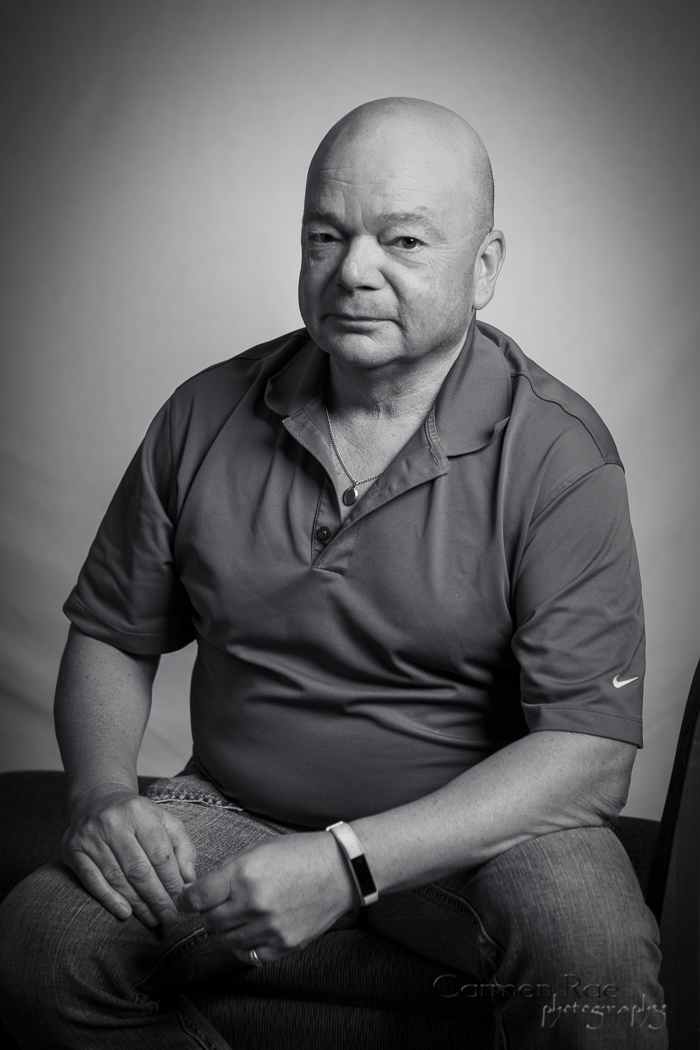

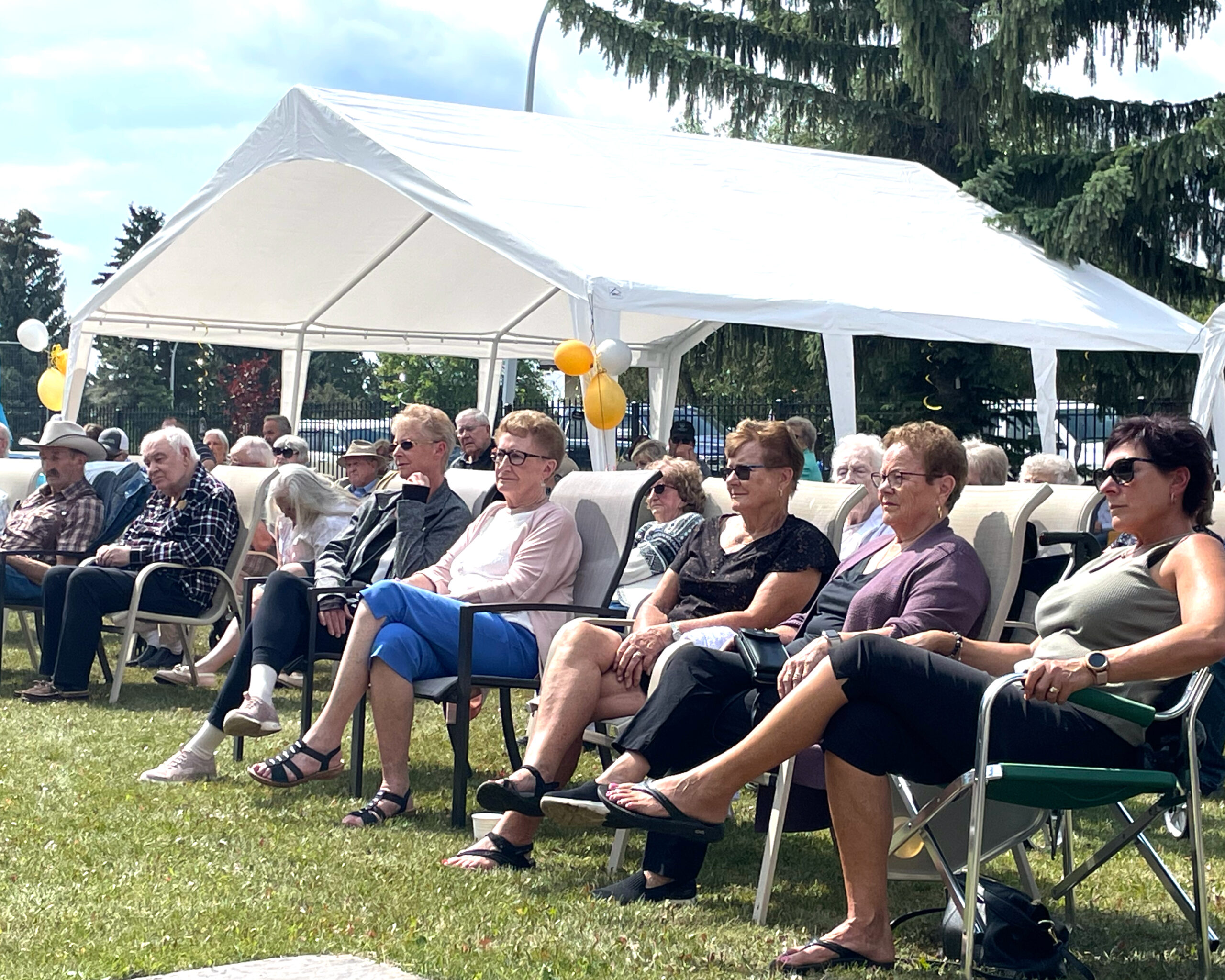


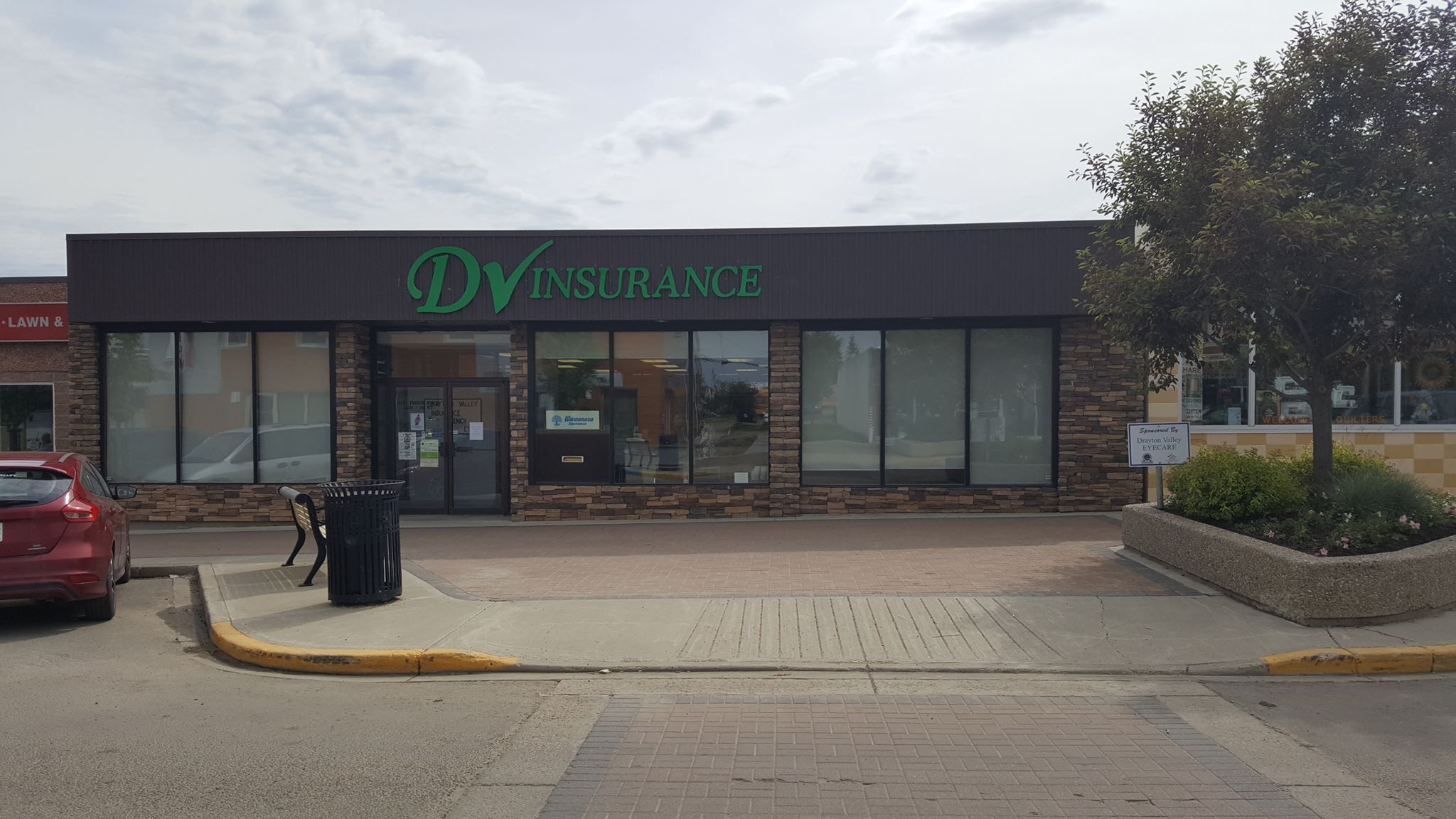

Activity 4: Who does what?
In groups of 4 go to PAGE 1 and PAGE 9 of the newspaper and label who did what.
E = Editor
R = Reporter
GD = Graphic Designer
C = Columnist
S = Sales
Activity 5: Conducting an Interview Speed Style
Interviewing people is a major job of a newspaper reporter. To conduct a good interview you need these three elements:
1. Questions; open ended
2. Paper and pen, or recorder
3. Listening ears and eyes
Open Ended Questions
Open ended questions are questions that get people talking. The are not yes or no questions. They are “How,” “Who,” and “What” questions.
Example: How did you feel winning the basketball game? What inspired you to write that story?
Never go to a newspaper interview without a recording device; Paper, pen, voice recorder or texting device. Reporters often quote and paraphrase their subjects and accuracy is key.
Quote: “I love to teach,” Kormysh said.
Paraphrase: Kormysh said she loves teahing.
Recording Tool
Active listening
Active listening means you are listening with your ears (close your mouth), your eyes and your body language. The key to a good interview is to get the other person talking this means you have to stop talking.
Speed Interview Game
- Take out a piece of paper.
2. Write down 1 open ended question you can ask your classmates
3. Break out in to two lines
4. When I say go, line A is going to ask classmates your question and record the answer.
5. Line A takes A step to the Right, and Line B asks their classmates their question.
6. Record their answers.
7. Discussion: How was your experience? How accurate did you record?
Final Activity 6: Photo and Feedback
Take the handout and answer the following question.
A. What is one thing I learned about the newspaper?
B. Gather for a Group Photo
Mental health calls drain resources
Police in Drayton Valley have seen an increase in the last year of arrests made under the Mental Health Act. Earlier this month Staff Sergeant Ryan Hoetmer told town council that calls of that type have seen a steady increase over the past several years, and they remain a big drain on resources for the Town.
Hoetmer explained that when the officers take somebody into custody under the act, they then take that person to the Centennial Centre for Mental Health in Ponoka. He says the drive itself eats up several hours of the officer’s time, but they also have to wait until staff at the centre take over.
He said the Centennial Centre has been working to make the intake process more efficient. In the past, officers have had to wait a couple of hours. Now, he says they make a call when they are on their way, and usually the intake is complete within half an hour.
When asked how long people are kept at the hospital, Hoetmer explained that they were normally kept for a week or two. At most, he believes they might be kept for a month.
Many of their calls under the Mental Health Act are from people the RCMP are already aware of, and Hoetmer says it can be a challenge keeping on top of those cases.
He says the RCMP bring the subject into the hospital. Once they are deemed healthy enough to depart, the person is often sent back to their community in a cab. After that, the individuals are in the same position they were in prior to the process beginning.
“I’m a big believer that there’s a bit of a gap there,” said Hoetmer. “When they are sent in a cab back to Drayton, they’re put back into the same position as before. There is no follow up program or some place for them to go in between.”
He said often RCMP watch the individuals as their mental health slowly declines until they have the grounds to apprehend them again.
Councillor Amila Gammana asked Hoetmer if he felt the reason people were being released on such a short timeline was due to a lack of resources. Hoetmer said he wasn’t sure what the reason for it was and that Alberta Health Services would better be able to answer that.
“I would hope it’s not a resourcing concern, that when the doctor is making their determination they are healthy enough to leave the facility,” he said. “But they have pressures, I’m sure, just like everybody else.”
Mayor Nancy Dodds asked Hoetmer if he’d seen an increase in resources since the new pillar ministries had been put into place, but Hoetmer says thus far they haven’t seen a change.
“We still have our one [Regional Police and Crisis Team] that operates out of Rocky, but as I’ve talked about before they are in our community maybe once a week,” said Hoetmer.
This means if there is an emergent issue that requires a response, the RPACT are not the ones who are responding to the call. It is instead left to the members of the Drayton Valley detachment.
“They do lots of follow up for us, but it’s our members that are doing the apprehensions and are going to the crisis when it’s happening,” said Hoetmer.
Support group for new Canadians
Moving to a new place can be stressful even if you are only moving one town over, but if you’re coming in from a different country, it can be overwhelming.
Verna Wicks, with Drayton Valley Community Learning (DVCL), is working together with other organizations in the community to build a Newcomers Support Team. The group is geared toward connecting people moving to the town or county with services they will need to get established.
What might feel like common sense to many people is not so easy for New Canadians. If they aren’t fluent in English or don’t know anyone in the area, setting up basics, like bank accounts and getting set up with Alberta Health Care could seem nearly impossible.
Wicks says interested parties decided to offer those supports early in 2024, but it wasn’t until DVCL received some grant funding last fall that they were able to hire someone for the group.
She says there are a number of groups who have been involved in setting up the team, including Family and Community Support Services, Alberta Health Services, the Multicultural Association, the library, the Town, the Chamber of Commerce, the Alberta Government, and many members of the public.
Similar to the Youth Hub, the support team is aiming to be a one stop connection point for newcomers. Wicks says the goal is to open a welcome centre that they can be directed to. At the centre, the newcomers will be connected with people and services in the community to help get them settled in.
Along with information and support, Wicks says they hope to also be able to give out a care package.
“We’re hoping that we’ll have some supplies for them if they need clothing or things for babies,” says Wicks.
The team would also like to host social events to help them meet new people. Last fall, they held their first welcoming event.
“That was open to newcomers and people from the community who wanted to welcome them,” she says.
Right now, the team is looking around the area to see which services are already being offered. Then, if they find any gaps, they can step up and provide something to meet those needs.
They are also putting together a document that can be given to immigrants in the community. She says it will contain a lot of basic information including contacts for different religious groups, and contacts for community and emergency services.
Wicks says there’s also a balance that the team needs to find. Right now there are many newcomers coming to the community. Some are refugees, some are looking for work, and others are coming through programs like the Rural Renewal Stream. However, the amount of newcomers may not always be so high.
She says there are also concerns about steady government funding. Recently, the federal government announced they would be cutting back on funding for support services for new immigrants. While the brunt of that will likely be felt in larger centres, Wicks says it’s making them cautious about asking for funds from any level of government.
The grant the team received in 2024 was renewed for 2025, but they won’t know for sure if it’s renewed for 2026 late 2025 or early 2026.
Anyone looking for more information about the team or the support they provide can reach out to Wicks at settlementservices@dvcommunitylearning.ca.
Bus association reaches end of the road
All good things must come to an end. The Drayton Valley Community Bus Association, which has been a fixture in the area since the 1970s, has ceased operations.
In an interview with the Free Press last week, Wendell Smith, the association’s treasurer, said a number of factors played a part in the decision to close effective December 21 last year. The majority of those factors revolved around increasing expenses and declining ridership.
“Diesel fuel is higher, insurance is higher. People don’t want to pay,” he said.
The bus association has played an important part in the growth of Drayton Valley. It was incorporated in May of 1973 by local business owners who were concerned about highway safety and who wanted to contribute something positive to the community.
“They bought a bus and founded the bus association and it’s been running ever since,” said Smith.
Over the last half century the bus association has covered hundreds of thousands of kilometres taking local residents to events across this part of Alberta and further afield. Many of those journeys were on school field trips or for minor hockey or other sports. Smith, who has been driving since 2001, said he’s happy to have played a part in the lives of so many local residents and is proud of the association’s record for getting people where they needed to be.
“We drove the Thunder for 25 years,” he said. “In all those years we were never late for an out of town game.”
Smith says at one point the association operated as many as “six or seven” buses. However, changing times have seen increasing numbers of potential riders using their own vehicles to attend out of town events. In recent years the number of buses operated by the association decreased to three; a 58 passenger coach, a 21 passenger mini bus and a 44 passenger school bus. Declining demand for busing means that those vehicles will now be put up for sale.
“The economy is hurting everybody,” he said. “If the economy isn’t booming people don’t have the money to hire a bus. I can’t blame any business for not using the service … The money’s just not there.”
Town responds to business concerns
After concerns raised at a pair of public meetings late last year, interim CAO for Drayton Valley, Pat Vincent, demonstrated the Town’s commitment to businesses and residents by presenting council with a detailed report that spoke to a range of issues at the last Governance and Priorities meeting.
Erik Bergen, a local business owner, came forward on November 20 with a presentation he had put together after having two open meetings with businesses in the community earlier in the fall. In his presentation, Bergen highlighted three main areas of concern: the homeless population, Town services and communications, and the free enterprise market in the community.
Bergen outlined several of those concerns as well as possible solutions for council to consider.
In the report Vincent brought forward, there were five separate responses from management involved in the areas that the businesses had issue with.
Enforcement services touched on several areas brought forth by Bergen. This included listing the various bylaws and acts that already addressed many of the areas of concern with the homeless population. The Community Standards Bylaw, the Municipal Government Act, and provincial trespassing legislation combined cover sleeping in public places, public disruption, loitering, public urination and defecation, unauthorized encampments, open fire, storage of personal items, and dumpster diving.
Cody Rossing, the manager of enforcement services and emergency management, also outlined areas that the Town could consider to help bolster the current laws surrounding those issues, such as amendments to the Outdoor Restrictions Burning bylaw and some possible amendments to the Community Standards Bylaw.
Rossing also explained that Drayton Valley could not create its own lower level court system to deal with petty crimes. However, he did say the community could petition for more court dates in Drayton Valley, which would allow more time for the courts to deal with all matters.
“Currently, with the scheduling at the Drayton Valley Court of Justice, trial dates are occurring on the same days for criminal code matters, provincial matters and municipal bylaw matters,” he says in his report. “This often results in lower-level offences either being withdrawn, or deals made to have the lower-level items removed so time can be focused on criminal code matters.”
As far as public safety in regards to needles, Rossing says they received only one call in 2023 from a business owner. In the past six months the Town’s Occupational Health and Safety Department only had four reports of Town staff locating needles.
Lola Strand, the manager of community services for the Town, spoke to the number of homeless individuals in the community and the efforts made to address the issue.
She mentioned the 2023 study done by the Rural Development Network, that found there were more than 8,300 individuals in rural Alberta dealing with some sort of housing issue. In Drayton, there were 28 people without homes, 25 people accessing emergency shelters such as the shelter pods or warming hearts, 83 people who were provisionally accommodated through things like couch surfing, and 140 individuals who were at risk of homelessness due to precarious housing.
Strand spoke to the strain enforcement services were dealing with in regard to responding to complaints of unsheltered people. She says the Town received a grant to hire a Community Outreach Worker who is communicating with at-risk individuals to help connect them to resources.
She also pointed out that along with the temporary emergency shelters the Town has put into place, there are also 26 affordable housing units in the community. Humans Helping Humans, the local organization that currently runs the shelter pods, has also built nine homes with grants, donations, and volunteers that have helped 19 families move into the regular housing market.
Strand also suggested the Town could work with the province to build halfway houses, or using grant money to purchase seacans, or trailers that can provide shelters in the encampment around the landfill that many of the homeless population are currently using.
Jenn Stone with intergovernmental relations and communication for the Town, outlined the different ways that the Town communicates with its residents.
The Town has a threefold approach to communication: traditional media, social media, and direct communication.
With advertisements and news stories, the Town works with the Drayton Valley Free Press and Big West Country 92.9. They also have pages on social media, the Town’s website, and YouTube. The electronic sign located at 50 Street and 50 Avenue is also used for communications. On top of those methods, the Town has held open houses, public hearings, direct mail, and door-to-door notices.
By using these different options, the Town is providing several different methods of communication for all age demographics.
Public works also responded to the grievances in the report, specifically in regard to the insect population, weed control, and snow removal.
When it comes to pesticides and herbicides, the individual applying the substances has to be certified and trained in the use of the chemicals. If at any point the Town doesn’t have many employees that meet those criteria, it can be difficult for them to keep up with the applications.
When it comes to insects, the Town only sprays for stinging insects in public spaces. They work to stay on top of the issues and will follow up to check on activity. They also use the public portal the Town provides through their website, to learn about any issues that residents have raised a concern with.
Spraying for weeds also has its challenges. There are limited time frames in which the application will be effective, such as when the weeds are actively growing. Then they also have to work around the weather, as it won’t be as effective if it’s raining. If those two requirements are met, the Town also has to consider any events going on and provide notices to nearby businesses and residents before they begin spraying.
For snow removal on sidewalks, the Town currently clears 53.4 km of asphalt trails and sidewalks in the community. Prior to 2022, the Town was clearing sidewalks in the downtown core, however, an amendment to the snow removal policy in November 2022 removed the downtown core from areas to be cleared.
Public works says if they were to be responsible for removing snow from all sidewalks in the community, they would have to double their staff and equipment to keep up with it. They say it is a common issue with many municipalities and one that is becoming more and more challenging.
The report also addressed the business owners’ concerns surrounding a free market in the community.
Peter Vana, the interim general manager for planning and growth development in the community, says there are legal limits to what the Town can do in regards to limiting businesses.
Vana says the Municipal Government Act grants municipalities the power to regulate businesses, but not prohibit businesses. Vana provided examples of land use regulations in several communities to show the different ways that the issue can be approached.
Along with that, Vana made some suggestions that might help to alleviate the issue, such as making restaurants a discretionary use in all districts, providing varying business license fees, partnering with local businesses to help give them better strategies to succeed.
However, Vana also pointed out some issues with picking a particular sector to regulate. He says were the Town to put in regulations on franchises in the food industry, it should be applied to all industries across the board, including oil and gas, as well as retail, as companies like Walmart or Canadian Tire could be seen as a threat to local businesses.
Vana also mentions that many franchises are owned by local residents, so they are in many ways, just like other local businesses.
Other problems with restricting franchises that Vana brought forward included that the public would like to have competition as it offers options and keeps prices lower. He also pointed out, using pizza restaurants as an example, that there are eight restaurants that mainly sell pizza, nine other restaurants that sell pizza as a sideline, and two other businesses that occasionally sell pizza as well.
Vana questions whether or not the Town would have to be completely aware of the different items each restaurant sells when deciding whether a business should be allowed or not.
Council accepted the report as information after asking several questions of the departments. Vincent says he made the businesses aware the report was being discussed at the meeting, but there were no representatives for council to ask questions of.
“It’s a proven technology, we know it works,” he says.
He says the company picked Brazeau County because it is a central hub area that is easily accessible to many companies in the oil and gas industry.
“The main draw is the proximity. There’s a lot of traffic through Brazeau County,” he says.
The recycling plant, the first of its kind in Canada, will be taking in invert, contaminated soil, and other contaminated substances from spills or tailing ponds that would normally just get packed into a landfill. They will pull the hydrocarbons out of the substance and then the substances can be put back into use.
Gibbons says the timeline for the project will consist of three phases. First, they need to have the substances trucked into the facility, and that will be their main focus initially. Next, they will have to work on processing those substances, and he estimates they can begin this in a year. Thirdly, they plan to do everything in their power to mitigate the carbon emissions the facility will have and are making plans for that.
The Town is making some changes to its Facility Code of Conduct in an effort to ensure its facilities aren’t being misused.
Cody Rossing, the manager of enforcement and emergency management, presented council with a proposed amendment to the Code of Conduct. Rossing says the Code of Conduct was put in place in August 2016. Since council expressed concern surrounding enforcement of removing homeless individuals from the Civic Centre vestibule, administration reviewed the code and came up with some suggestions.
Rossing says there are several different prohibitions that were not included in the original Code of Conduct. Most of the changes were stronger wording surrounding loitering and failing to comply with signage. While the original code prohibited smoking, it did not mention vaping, so Rossing says they have changed that.
The wording surrounding service animals was also changed to match provincial law.
The proposed changes also give more power to facility managers when it comes to banning individuals from Town facilities. They will be able to ban individuals for up to seven days. General managers and peace officers will also be able to suspend someone for up to six months. CAOs will be able to ban someone for more than six months if necessary.
“It’s putting in those different layers so the CAO isn’t involved in everything,” says Rossing.
He says there are also changes to wording surrounding the appeals process of someone who has been banned for more than 24 hours.
“And it clarifies that if someone is contravening their suspension or expulsion, then they are considered trespassing and law enforcement will be made aware for further actions,” says Rossing.
Councillor Colin Clarke raised concerns about the bans, asking if a ban from Town facilities meant all Town-owned buildings, even if there were tennants operating out of some of them. He says he worried that banning someone from the Omniplex might affect their ability to go to the Food Bank or other necessary services.
Hans van Klaveren, the acting CAO, says that typically the operator is setting those guidelines or rules for their building.
Councillor Tom McGee also spoke about the Warming Hearts Centre as the Town helps to fund the rent for the facility through grants.
In the end, it was decided that if a tenant wanted to have someone trespassed, they would contact Rossing and it would be treated like other businesses in the community. Their bans will only apply to Town owned and operated facilities.
“I’m glad to see we’re addressing this and putting the structure in place to give you the tools to do something about it,” says Councillor Rick Evans.
“I think that, in the end, our residents are going to appreciate our efforts to make the use of our facilities more enjoyable and safe, ultimately.”
Download your experience guide
Spending a weekend cycling the secondary highway in and around Brazeau County is one of the great outdoor activities that this region has to offer. Minutes outside of Drayton Valley you will find yourself on kilometers of highway that seem to continue to stretch West. Many of these highways go near small hamlets and communities in the area, they go into and come out of river valleys and on a clear day offer a beautiful view of the Rocky Mountains.
One such circuit is the DV100 century loop. This 100km route takes you west past farmlands and through lush boreal forests, and through the small communities and hamlets that mark the birth of Alberta’s oil and gas industry. It is a loop that can be done with speed or taken at a leisurely pace, offering snack and eatery stops along the way.
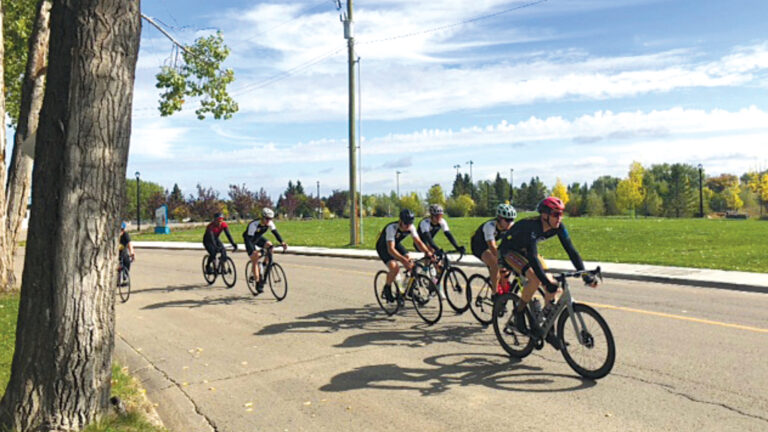
Day 1: Arrival, dinner
Arrive at hotel: When you stay at a Drayton Valley Hospitality and Tourism hotel or campground you support local tourism initiatives in Drayton Valley and Brazeau County.
Evening ride: Stretch your legs and do the 19 km ring road multipurpose trails to Rocky Rapids. Park your vehicle at the “Welcome to Drayton Valley” derricks at the south end of town and right across the street you will be on the trails. The route will take you straight out to the hamlet of Rocky Rapids where you can stop off at the Rocky Rapids store for a snack. The original building is located at the Drayton Valley museum.
Dinner: Did you know we have over 40 different restaurants in Drayton Valley? Look at our restaurant listing in this guide.
Ricochet Aquatic Centre: Take in the steamroom and the hot tub at the local swimming pool. The pool is open until 8:00 pm most nights and will get you ready for your big century ride tomorrow.
Day 2: The DIY DV100
Breakfast: Take in some breakfast at your hotel or head out to one of our great breakfast venues.
DIY DV100: The DV100 is a 100 kilometre route that travels secondary highways in Brazeau County. Along the route there are several spots you can stop to regroup, take in a photo and enjoy some food. Just out of town is the Poplar Ridge Store, this is your last stop to get any supplies until you reach the community of Lodgepole about about kilometre 40.
Arrive Lodgepole: this is a small hamlet that has a general store in the heart of town. Here you can grab a drink, and convenience store fare. There is also the hotel restaurant that is open 11-12:30 and 3-8 most days, there is also the Aud Spot for breakfast and lunch as a cash only option.
Heading out of Lodgepole towards Cynthia there are a few great photo opportunities as you crest a hill coming up from the Pembina River Valley. This is a slog of a climb but once you crest it is smooth sailing to Cynthia.
Near the Hamlet of Cynthia there is the ever popular Cyn City Saloon where you can get a beverage and a burger. Heading back towards Drayton Valley and Hwy 621 your next stop is 39 km away in the community of Rocky Rapids where you can stop at the store for some snacks and then back into town.
(In the Evening)
Hotel: regroup at your hotel and get ready for the evening.
Dinner: Drayton Valley has more than 40 different restaurants. Have a look at our listings page to decide where you want to eat.
Drinks: Head to a patio and enjoy the sunset with an ice cold brew. Lounge patios can be found at; Khal’s Steakhouse, Boston Pizza, Mitch’s Restaurant, Oil Country Tap House, Bourbon House and Mr. Mikes.
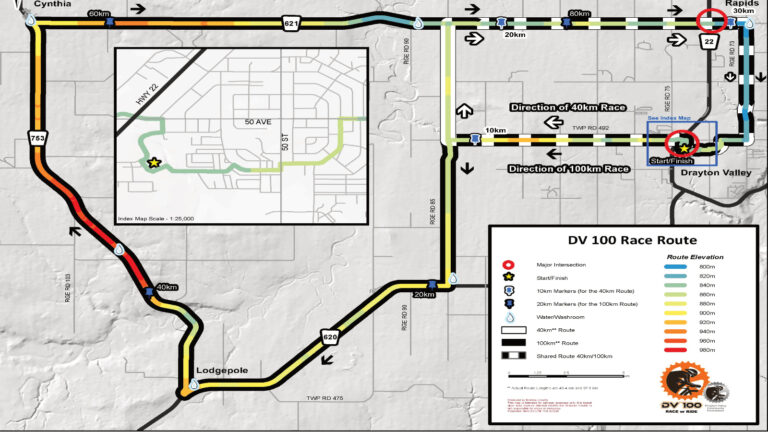
Day 3 Check out, walk and head home
Breakfast: Breakfast at your hotel or check out and head to a local restaurant for brunch.
Disc golf or a walk: If you want to stretch your time here in Drayton Valley, head over to Ivan To Park for a walk around the pond or a round of disc golf. The park has an 18-hole disc golf course that is open at no charge. If you’re pushed for time there’s an easy cut off to limit your round to 9 holes.
Head home. We hope you’ve enjoyed your time in our community. Come back soon!
Staff Sergeant Ryan Hoetmer says dealing with the effects of the homeless population in the community is not simple.
Hoetmer says that the most common complaint regarding homeless individuals is about them sleeping or spending time in business entrances. That was one of the main issues raised by town council in a discussion on September 18.
Hoetmer says RCMP involvement in removing the individual and charging them with trespassing is a bit tricky, especially in regards to private businesses.
“The police themselves do not make a determination of whether that homeless individual can be there or not,” says Hoetmer. “That has to be the business that decides that.”
This means that someone from the business has to contact the RCMP to let them know there is an unwanted individual in the vestibule. At that point, police can attend and get the individual moving along.
However, unless the business has served trespass notices on the person causing the issue, the RCMP cannot issue fines for trespassing.
That is also not as simple as it seems. Hoetmer says that does give the trespass notice has to be willing to pursue the entire process into court as well.
“They’ve got to show up at trial if this individual fights it,” he says.
Hoetmer says banks, for example, are not typically interested in pursuing this as they all have nationally run security headquarters, so there’s not a lot of interest in them following those steps.
Both the Town and RCMP have met with bank managers and are encouraging them to lock their doors at night to prevent the homeless from using the vestibule as a warming space.
Due to the lifestyle that comes with homelessness, which often includes mental health issues and addictions, the RCMP do interact with the homeless on a regular basis.
“We get to know these individuals, but unless they are commiting crime we don’t have a lot of power,” he says.
He says the Town has asked them to have more enforcement on homeless individuals who have been banned or issued trespassing notices.
“Our job is community safety so if that’s what the community wants to keep the community safe, we’ve agreed to do that,” says Hoetmer.
However, that means businesses need to start following through with the process on their end.
In regards to the Civic Centre vestibule, Hoetmer says the Town would need to start looking at trespassing individuals in order for the RCMP to begin issuing tickets.
“That is up to the Town whether they want to trespass these individuals from all Town property,” says Hoetmer.
But even with all of the businesses doing their part and the RCMP able to keep up with the enforcement, there is still more to consider.
“Enforcement has failed these individuals for years. Nobody usually becomes unsheltered without probably having had enforcement intervention for a number of years already, and it hasn’t changed anything.”
Hoetmer says there have been no complaints of physical harm caused to residents by any homeless individuals. “They can be aggressive and make people feel uncomfortable, but we have had no assaults. No reports of any sort of physical violence to anybody.”
In regards to break and enters, Hoetmer says some of the smaller property crimes are being committed by homeless individuals, but they aren’t the only ones.
“There’s other individuals in town that are not homeless that are committing those offences,” says Hoetmer. “The bigger break and enters are being committed by prolific property crime offenders.”
In regards to issuing fines for trespassing, Hoetmer says that also isn’t as simple as many believe. Those who have fines may not be able to pay them. At some point, they can be arrested, but there is no guaranteed timeline for how long the individual will stay behind bars, as they will be released first if room is needed for people convicted of more serious crimes.
In the end, the fines do not get paid.
Hoetmer says he doesn’t want the Town to “hang their hat on enforcement,” because while it can play a role in deterring homeless individuals from becoming a nuisance, it’s not the entire solution.
“We’re going to have a role,” says Hoetmer. “Our job is keeping the community safe. So, if part of that is needing to enforce, then we will do that.”
Drayton Valley high school students had the chance to listen to a first hand account of an indigenous woman whose life was drastically altered by the Sixties Scoop.
Michaela Lewis is now a student at SAIT, but her road there was long and arduous. She told the students that she is enrolled in the Film and Video Production program, which she plans to use to create a documentary about her life.
“It wasn’t just my family that I lost,” said Lewis. “It was my culture, my traditions, my language, my identity.”
Lewis’ mother, Bernice, gave birth to her in the spring of 1979 in the Edmonton General Hospital, and at the time was on her own. Bernice was married to a non-indigenous man, which meant that she and her children had lost their treaty rights. At the time of Lewis’ birth, the husband was in prison. Lewis was not his biological child.
Hospital staff told Bernice that she couldn’t raise a child on her own.
“The nurses and the hospital staff forced my mother into signing me away,” said Lewis.
She said her mother just went along with everything they told her to do because she felt like she had no other option. After she left the hospital, she went and got her other daughter before returning to the hospital to get Lewis.
When Bernice returned the next day, the staff told her that Lewis had been given to social services and that she had to deal with them. Lewis’ mother was given the run around by social services for several weeks before finally hearing that Lewis had died.
Instead, Lewis had been adopted out to a non-indigenous family. Social services also took her older sister from her mother.
“My older sister was lost to the system by the age of five,” says Lewis.
As a result of losing both of her children, Lewis’ mother turned to substances to cope and became an addict. For quite some time, her mother was homeless because there was no support system for her.
At 18 years-old, Lewis was able to unseal her adoption records and began to search for her family. Eventually, Lewis was reunited with her mother, stepfather, three sisters, brother, and a large extended family.
Lewis’ adopted mother had told her that “those native mothers, they left their unwanted babies in garbage cans and they were all alcoholics and addicts.” Lewis was even told she likely had fetal alcohol syndrome. It wasn’t until later that she found out that was not true. Bernice told Lewis that she hadn’t told anyone about Lewis because she thought that a nurse had ended Lewis’ life at the hospital after she had left her there.
Lewis was shocked as nurses were respected health care providers. She had been raised to believe there was a system in place that prevented such things. She began looking into the history and learned about the residential school system and all of the children who had been taken from their families.
Bernice told Lewis not to bother with trying to get justice because she would get nowhere. Her mother had been in the Bow Valley Residential School, and after learning of its history, Lewis understood why her mother had believed a nurse had killed Lewis.
Then, history repeated itself.
“My oldest son was taken from me when he was four-years-old,” said Lewis. “In that horrific moment, I completely understood why my mother lived the life that she did.”
At the time, Lewis was a single mother attending college to get her high school diploma. She had aspirations of becoming an interior designer.
When her son was five months old, his father left Lewis and later began stalking her. He threatened to take her son. Her adopted mother told her that if Lewis gave custody of her son to her adoptive mother, his father couldn’t take him and Lewis could still have the boy live with her.
“Desperate to keep my child, I agreed to it.”
Lewis was stressed out with everything going on, so her stepfather suggested she come back to live with them and finish her schooling with the support of her family. Lewis agreed and notified her adoptive mother of her move.
That was when her adoptive parents came and took her son.
“I didn’t even have a chance to have a say in court.”
Lewis became suicidal. She was unable to go back to school or get her job back and she spiraled, eventually becoming an addict.
“I’ve never in my life felt so broken, defeated, and alone,” she said.
It was her stepfather who helped her to heal and become sober. She says he was supportive and told her that she didn’t have to let the same thing happen to her that happened to her mother. After the conversation with her stepfather, Lewis began working to placate her adoptive parents so she could see her son.
Ten years after her son was taken, Lewis stood up to fight for her oldest son. When her second son was born in 2014, she told her adoptive parents that they wouldn’t keep her children apart. She regained custody of her son, and has been raising her youngest son since his birth.
Lewis said she is the first mother in several generations in her family, to have the opportunity to raise a child from birth.
Download your experience guide
Before there were clubs, and ultra lounges there was the rural bar. The rural bar was a place people would go to have a drink, eat some food, get a bit of news and maybe even get a haircut. The rural bar was usually built alongside or attached to the lone hotel in the community. These were the first restaurants and live music venues and a place where the community could gather.
For our rural watering hole tour we dug up six watering holes in the Brazeau and Beyond region that hold historical significance for the communities they operate in.
Our tour begins at the Drayton Valley Hotel. The Drayton Valley Hotel was built in 1954. It was the anchor for what would become downtown Drayton Valley. Before the Derrick Lounge became a centerpiece of the Drayton Valley Hotel, there were many different shops that occupied the bottom floor of the building including Rexall Drugs, a menswear store, the Royal Bank of Canada and a cafe. The cafe was located on the storefront with the lounge located off the street in the back.
“I remember in 1999 you had to walk through the cafe to get to the lounge and it was draft for $1,” recalls resident Graham Long.
The Derrick Lounge, named in honour of the industry that gave rise to the development of Drayton Valley. This is a watering hole best known for its Friday night karaoke.
Iron Wheel Inn and Tavern, Entwistle
42 KM, 25 Minutes
Just 25 minutes drive, 42 kilometers north of Drayton Valley is the Iron Wheel Inn and Tavern. The Iron Wheel is located in the heart of Entwistle. The Iron Wheel dates back to 1910 when the building was originally the Immigration Hall built near the Grand Trunk Railroad Station. Parts of the Grand Trunk bridge footings can still be seen at the Pembina River Provincial Park. When the “Moose” Munroe’s hotel was destroyed in a fire in 1919, his eye turned to the immigration hall which was no longer in use. Through a series of exchanges Munroe acquired the hall and began operating it as a hotel. In 1922 the hall was moved, in two parts, to the current location of the Iron Wheel Inn and Tavern where it remains to this day.
Gainford Hotel, Iron Lady Saloon, Gainford
15 KM, 9 minutes
Gainford is a tiny hamlet of 118 people in Parkland County. It is 86 km west of Edmonton on Highway 16 (Yellowhead Highway) and 18 km from Entwistle. The Gainford Hotel first opened its doors to welcome guests in 1958. In those days hotel guests were seismic and construction crews working in the area. As things changed the hotel became a stomping ground for university students heading out to Seba Beach for a hot summer weekend. The hotel closed in 2013 only to be revived a decade later. In 2023 the Iron Lady Saloon and Java and Gem Get Stuffed Restaurant opened their doors. The inside has a distinct western feel. There’s a traditional dark wood bar and billiards. Stuffed coyotes, lynx, rabbits, owls, and hawks still decorate the tavern walls from days gone by.
The Iron Lady Saloon is known for various Saturday night live music events.
Doggone Saloon, Tomahawk
25 KM, 17 minutes
Just a 17 minute drive from Gainford is the hamlet of Tomahawk. If you are looking for a rural watering hole experience this is as rural as it comes. The history of Tomahawk dates back to 1902. With the first mention of a hotel and cafe dating back 1909. The “Last Chance Cafe” was owned by John Kelly; it was described as a “shack right in the road,” by Mrs. Kelly in Tomahawk Trails. The cafe became known as the Last Chance Hotel. “Meals at all hours, people stayed there when they could stay at no place else. The door was open day or night whether he [Kelly] was home or not and people stayed as long as they wanted to,” Mrs. Kelly wrote. The hospitality in the area now belongs to the Doggone Saloon, in the middle of Tomahawk. The saloon is still a favorite stop for travelers passing by. Throughout the summer months motorcyclists riding Alberta’s scenic rural roads will stop off at the saloon for the patio and a refreshment.
The Village Golf Course, Lindale
21km 15 min
Honorable Mention: The lounge at the Village Golf Course is another stop you can add to your rural bar tour. The lounge is connected to the hotel and club house for the Village Golf Course. The lounge offers beverages and a food full menu.
The Breton Hotel and Bar, Breton
32 KM, 22 minutes
The Breton Hotel and Bar was built five years after the Lacome and Northwestern Railway came to the community. The hotel was built by William Spindler in 1931. In those days, like many other rural hotels and bars the Breton Hotel and Bar also had a barber shop. The decades that followed the 1930s, the bar had two entrances: one each for men and women. Over the years the hotel and bar was bought and sold many times with each new owner adding to or changing the design of the building. Joe and Katie Eluik purchased the hotel in 1964, at this time draft beer sold for 10 cents a glass, bottled beer was 30 cents and a case of beer could be bought for $2.50. The prices are not the only changes that happened, the separate entrances are no longer used, and the peaked roof in the original design has been redesigned as a flat top.
The Breton Hotel and Bar is still a fixture in downtown Breton.
Drayton’s Restaurant and Sports Lounge, Drayton Valley
48 KM, 34 minutes
Honorable Mention: As you meander back to Drayton Valley the Sports Lounge, attached to Drayton’s Restaurant is a worthy stop of this rural watering hole tour. The sports lounge has a distinct small town feel with billiards, friendly staff and a diverse menu. This is a place where you can unwind in the heart of Drayton Valley.
From the Sports Lounge you are just a block away from where you started at the Drayton Valley Hotel.
The old hotels, and bars that pepper our rural communities are linked to how the communities developed, and socialized in the down time between farming seasons, or at the end of a hard work day. They have a unique history that has evolved with the community and share in the community’s past and future.
Drayton Valley’s River Valley Players provided two well produced showcases for our local talent last weekend. Drayton Valley Has Talent 2024 junior and adult showcases were held the afternoon and evening of September 21 on the Pembina Stage of Eleanor Pickup Arts Centre in downtown Drayton Valley. The performances all benefited from full light and sound and the volunteer stage hands’ efficient handling of set changes.
Master of Ceremonies Leah Sanderson kept the evening on track and filled the space between acts with pleasant patter and some observational humour. Several rounds of “Happy Birthday to You” honoured those celebrating their special day.
With the last performer off stage, judge’s score sheets tabulated and result envelopes in the MC’s hand, audience drumrolls raised tension in the theatre as the winners were announced. The Junior results put Ella Rae’s performance of the Haley Joelle song, “Memory Lane” in third, Dandaline and Delilah Dusterhoft’s dance to “Daylight” in second, and the ventriloquism of Taylor Holman and her humourous puppets Rose, Grandma, a dog and a wise cracking, bacon loving goose first place. An audience favourite, Ms Holman’s performance sparkled with wit and laughs as her polished style and technique belied her years.
The adult category results placed Elvis performer Dustin Giesbrecht’s tribute to “Burning Love”, in third, and a performance of Keith Urban’s “Till Summer Comes Around” by Levi Eshleman in second. First place was awarded to an accomplished performance of the Liz Callaway song “Once Upon a December” from the Disney movie Anastasia. Claire Williams sung it with a sureness, intonation and presence that earned her the top spot.
Ayla Gartner, Ricky Bazar, John Dempster, and Melissa Wolf judged the performances. They were supportive and encouraging of the performers’ efforts and offered positive comments and suggested areas for growth.
Ashley Luckwell of RVP was grateful to the many local sponsors that made Drayton Valley Has Talent 2024 possible. “Being able to have two shows and have close to a full house in each meant we didn’t have to turn anyone away, audience or performers. It was wonderful!”
She was pleased with the generous spirit of the two audiences the showcase attracted and the great support they too gave to the junior and adult performers. “The audience’s support for the performers was amazing, very moving”, Luckwell commented. The audience came to the aid in a few performer’s faltering moments with cheers, applause and encouraging words.
One of the ideas being considered is a greenhouse next to the facility. The process of removing the hydrocarbons will result in large quantities of carbon dioxide. Gibbons says they’ve seen projects where companies funnel the CO2 into greenhouses because it’s a gas that plants need to thrive.
“The processing is the core of the technology,” he says. “We pull all of them out: Ninety-nine point nine percent.”
At the moment, he says most companies are stockpiling these substances in landfills, and the goal of the recycling plant is to limit that from happening. Once they have removed the hydrocarbons, the substance is clean and can be used again.
“If there’s a spill and we pull all of the crude out of the dirt, that crude can go back on the market afterwards. That dirt can now be used safely,” he says.
The Town is making some changes to its Facility Code of Conduct in an effort to ensure its facilities aren’t being misused.
Cody Rossing, the manager of enforcement and emergency management, presented council with a proposed amendment to the Code of Conduct. Rossing says the Code of Conduct was put in place in August 2016. Since council expressed concern surrounding enforcement of removing homeless individuals from the Civic Centre vestibule, administration reviewed the code and came up with some suggestions.
Rossing says there are several different prohibitions that were not included in the original Code of Conduct. Most of the changes were stronger wording surrounding loitering and failing to comply with signage. While the original code prohibited smoking, it did not mention vaping, so Rossing says they have changed that.
The wording surrounding service animals was also changed to match provincial law.
The proposed changes also give more power to facility managers when it comes to banning individuals from Town facilities. They will be able to ban individuals for up to seven days. General managers and peace officers will also be able to suspend someone for up to six months. CAOs will be able to ban someone for more than six months if necessary.
“It’s putting in those different layers so the CAO isn’t involved in everything,” says Rossing.
He says there are also changes to wording surrounding the appeals process of someone who has been banned for more than 24 hours.
“And it clarifies that if someone is contravening their suspension or expulsion, then they are considered trespassing and law enforcement will be made aware for further actions,” says Rossing.
Councillor Colin Clarke raised concerns about the bans, asking if a ban from Town facilities meant all Town-owned buildings, even if there were tennants operating out of some of them. He says he worried that banning someone from the Omniplex might affect their ability to go to the Food Bank or other necessary services.
Hans van Klaveren, the acting CAO, says that typically the operator is setting those guidelines or rules for their building.
Councillor Tom McGee also spoke about the Warming Hearts Centre as the Town helps to fund the rent for the facility through grants.
In the end, it was decided that if a tenant wanted to have someone trespassed, they would contact Rossing and it would be treated like other businesses in the community. Their bans will only apply to Town owned and operated facilities.
“I’m glad to see we’re addressing this and putting the structure in place to give you the tools to do something about it,” says Councillor Rick Evans.
“I think that, in the end, our residents are going to appreciate our efforts to make the use of our facilities more enjoyable and safe, ultimately.”
Download your experience guide
Spending a weekend cycling the secondary highway in and around Brazeau County is one of the great outdoor activities that this region has to offer. Minutes outside of Drayton Valley you will find yourself on kilometers of highway that seem to continue to stretch West. Many of these highways go near small hamlets and communities in the area, they go into and come out of river valleys and on a clear day offer a beautiful view of the Rocky Mountains.
One such circuit is the DV100 century loop. This 100km route takes you west past farmlands and through lush boreal forests, and through the small communities and hamlets that mark the birth of Alberta’s oil and gas industry. It is a loop that can be done with speed or taken at a leisurely pace, offering snack and eatery stops along the way.

Day 1: Arrival, dinner
Arrive at hotel: When you stay at a Drayton Valley Hospitality and Tourism hotel or campground you support local tourism initiatives in Drayton Valley and Brazeau County.
Evening ride: Stretch your legs and do the 19 km ring road multipurpose trails to Rocky Rapids. Park your vehicle at the “Welcome to Drayton Valley” derricks at the south end of town and right across the street you will be on the trails. The route will take you straight out to the hamlet of Rocky Rapids where you can stop off at the Rocky Rapids store for a snack. The original building is located at the Drayton Valley museum.
Dinner: Did you know we have over 40 different restaurants in Drayton Valley? Look at our restaurant listing in this guide.
Ricochet Aquatic Centre: Take in the steamroom and the hot tub at the local swimming pool. The pool is open until 8:00 pm most nights and will get you ready for your big century ride tomorrow.
Day 2: The DIY DV100
Breakfast: Take in some breakfast at your hotel or head out to one of our great breakfast venues.
DIY DV100: The DV100 is a 100 kilometre route that travels secondary highways in Brazeau County. Along the route there are several spots you can stop to regroup, take in a photo and enjoy some food. Just out of town is the Poplar Ridge Store, this is your last stop to get any supplies until you reach the community of Lodgepole about about kilometre 40.
Arrive Lodgepole: this is a small hamlet that has a general store in the heart of town. Here you can grab a drink, and convenience store fare. There is also the hotel restaurant that is open 11-12:30 and 3-8 most days, there is also the Aud Spot for breakfast and lunch as a cash only option.
Heading out of Lodgepole towards Cynthia there are a few great photo opportunities as you crest a hill coming up from the Pembina River Valley. This is a slog of a climb but once you crest it is smooth sailing to Cynthia.
Near the Hamlet of Cynthia there is the ever popular Cyn City Saloon where you can get a beverage and a burger. Heading back towards Drayton Valley and Hwy 621 your next stop is 39 km away in the community of Rocky Rapids where you can stop at the store for some snacks and then back into town.
(In the Evening)
Hotel: regroup at your hotel and get ready for the evening.
Dinner: Drayton Valley has more than 40 different restaurants. Have a look at our listings page to decide where you want to eat.
Drinks: Head to a patio and enjoy the sunset with an ice cold brew. Lounge patios can be found at; Khal’s Steakhouse, Boston Pizza, Mitch’s Restaurant, Oil Country Tap House, Bourbon House and Mr. Mikes.

Day 3 Check out, walk and head home
Breakfast: Breakfast at your hotel or check out and head to a local restaurant for brunch.
Disc golf or a walk: If you want to stretch your time here in Drayton Valley, head over to Ivan To Park for a walk around the pond or a round of disc golf. The park has an 18-hole disc golf course that is open at no charge. If you’re pushed for time there’s an easy cut off to limit your round to 9 holes.
Head home. We hope you’ve enjoyed your time in our community. Come back soon!
Staff Sergeant Ryan Hoetmer says dealing with the effects of the homeless population in the community is not simple.
Hoetmer says that the most common complaint regarding homeless individuals is about them sleeping or spending time in business entrances. That was one of the main issues raised by town council in a discussion on September 18.
Hoetmer says RCMP involvement in removing the individual and charging them with trespassing is a bit tricky, especially in regards to private businesses.
“The police themselves do not make a determination of whether that homeless individual can be there or not,” says Hoetmer. “That has to be the business that decides that.”
This means that someone from the business has to contact the RCMP to let them know there is an unwanted individual in the vestibule. At that point, police can attend and get the individual moving along.
However, unless the business has served trespass notices on the person causing the issue, the RCMP cannot issue fines for trespassing.
That is also not as simple as it seems. Hoetmer says that does give the trespass notice has to be willing to pursue the entire process into court as well.
“They’ve got to show up at trial if this individual fights it,” he says.
Hoetmer says banks, for example, are not typically interested in pursuing this as they all have nationally run security headquarters, so there’s not a lot of interest in them following those steps.
Both the Town and RCMP have met with bank managers and are encouraging them to lock their doors at night to prevent the homeless from using the vestibule as a warming space.
Due to the lifestyle that comes with homelessness, which often includes mental health issues and addictions, the RCMP do interact with the homeless on a regular basis.
“We get to know these individuals, but unless they are commiting crime we don’t have a lot of power,” he says.
He says the Town has asked them to have more enforcement on homeless individuals who have been banned or issued trespassing notices.
“Our job is community safety so if that’s what the community wants to keep the community safe, we’ve agreed to do that,” says Hoetmer.
However, that means businesses need to start following through with the process on their end.
In regards to the Civic Centre vestibule, Hoetmer says the Town would need to start looking at trespassing individuals in order for the RCMP to begin issuing tickets.
“That is up to the Town whether they want to trespass these individuals from all Town property,” says Hoetmer.
But even with all of the businesses doing their part and the RCMP able to keep up with the enforcement, there is still more to consider.
“Enforcement has failed these individuals for years. Nobody usually becomes unsheltered without probably having had enforcement intervention for a number of years already, and it hasn’t changed anything.”
Hoetmer says there have been no complaints of physical harm caused to residents by any homeless individuals. “They can be aggressive and make people feel uncomfortable, but we have had no assaults. No reports of any sort of physical violence to anybody.”
In regards to break and enters, Hoetmer says some of the smaller property crimes are being committed by homeless individuals, but they aren’t the only ones.
“There’s other individuals in town that are not homeless that are committing those offences,” says Hoetmer. “The bigger break and enters are being committed by prolific property crime offenders.”
In regards to issuing fines for trespassing, Hoetmer says that also isn’t as simple as many believe. Those who have fines may not be able to pay them. At some point, they can be arrested, but there is no guaranteed timeline for how long the individual will stay behind bars, as they will be released first if room is needed for people convicted of more serious crimes.
In the end, the fines do not get paid.
Hoetmer says he doesn’t want the Town to “hang their hat on enforcement,” because while it can play a role in deterring homeless individuals from becoming a nuisance, it’s not the entire solution.
“We’re going to have a role,” says Hoetmer. “Our job is keeping the community safe. So, if part of that is needing to enforce, then we will do that.”
Drayton Valley high school students had the chance to listen to a first hand account of an indigenous woman whose life was drastically altered by the Sixties Scoop.
Michaela Lewis is now a student at SAIT, but her road there was long and arduous. She told the students that she is enrolled in the Film and Video Production program, which she plans to use to create a documentary about her life.
“It wasn’t just my family that I lost,” said Lewis. “It was my culture, my traditions, my language, my identity.”
Lewis’ mother, Bernice, gave birth to her in the spring of 1979 in the Edmonton General Hospital, and at the time was on her own. Bernice was married to a non-indigenous man, which meant that she and her children had lost their treaty rights. At the time of Lewis’ birth, the husband was in prison. Lewis was not his biological child.
Hospital staff told Bernice that she couldn’t raise a child on her own.
“The nurses and the hospital staff forced my mother into signing me away,” said Lewis.
She said her mother just went along with everything they told her to do because she felt like she had no other option. After she left the hospital, she went and got her other daughter before returning to the hospital to get Lewis.
When Bernice returned the next day, the staff told her that Lewis had been given to social services and that she had to deal with them. Lewis’ mother was given the run around by social services for several weeks before finally hearing that Lewis had died.
Instead, Lewis had been adopted out to a non-indigenous family. Social services also took her older sister from her mother.
“My older sister was lost to the system by the age of five,” says Lewis.
As a result of losing both of her children, Lewis’ mother turned to substances to cope and became an addict. For quite some time, her mother was homeless because there was no support system for her.
At 18 years-old, Lewis was able to unseal her adoption records and began to search for her family. Eventually, Lewis was reunited with her mother, stepfather, three sisters, brother, and a large extended family.
Lewis’ adopted mother had told her that “those native mothers, they left their unwanted babies in garbage cans and they were all alcoholics and addicts.” Lewis was even told she likely had fetal alcohol syndrome. It wasn’t until later that she found out that was not true. Bernice told Lewis that she hadn’t told anyone about Lewis because she thought that a nurse had ended Lewis’ life at the hospital after she had left her there.
Lewis was shocked as nurses were respected health care providers. She had been raised to believe there was a system in place that prevented such things. She began looking into the history and learned about the residential school system and all of the children who had been taken from their families.
Bernice told Lewis not to bother with trying to get justice because she would get nowhere. Her mother had been in the Bow Valley Residential School, and after learning of its history, Lewis understood why her mother had believed a nurse had killed Lewis.
Then, history repeated itself.
“My oldest son was taken from me when he was four-years-old,” said Lewis. “In that horrific moment, I completely understood why my mother lived the life that she did.”
At the time, Lewis was a single mother attending college to get her high school diploma. She had aspirations of becoming an interior designer.
When her son was five months old, his father left Lewis and later began stalking her. He threatened to take her son. Her adopted mother told her that if Lewis gave custody of her son to her adoptive mother, his father couldn’t take him and Lewis could still have the boy live with her.
“Desperate to keep my child, I agreed to it.”
Lewis was stressed out with everything going on, so her stepfather suggested she come back to live with them and finish her schooling with the support of her family. Lewis agreed and notified her adoptive mother of her move.
That was when her adoptive parents came and took her son.
“I didn’t even have a chance to have a say in court.”
Lewis became suicidal. She was unable to go back to school or get her job back and she spiraled, eventually becoming an addict.
“I’ve never in my life felt so broken, defeated, and alone,” she said.
It was her stepfather who helped her to heal and become sober. She says he was supportive and told her that she didn’t have to let the same thing happen to her that happened to her mother. After the conversation with her stepfather, Lewis began working to placate her adoptive parents so she could see her son.
Ten years after her son was taken, Lewis stood up to fight for her oldest son. When her second son was born in 2014, she told her adoptive parents that they wouldn’t keep her children apart. She regained custody of her son, and has been raising her youngest son since his birth.
Lewis said she is the first mother in several generations in her family, to have the opportunity to raise a child from birth.
Download your experience guide
Before there were clubs, and ultra lounges there was the rural bar. The rural bar was a place people would go to have a drink, eat some food, get a bit of news and maybe even get a haircut. The rural bar was usually built alongside or attached to the lone hotel in the community. These were the first restaurants and live music venues and a place where the community could gather.
For our rural watering hole tour we dug up six watering holes in the Brazeau and Beyond region that hold historical significance for the communities they operate in.
Our tour begins at the Drayton Valley Hotel. The Drayton Valley Hotel was built in 1954. It was the anchor for what would become downtown Drayton Valley. Before the Derrick Lounge became a centerpiece of the Drayton Valley Hotel, there were many different shops that occupied the bottom floor of the building including Rexall Drugs, a menswear store, the Royal Bank of Canada and a cafe. The cafe was located on the storefront with the lounge located off the street in the back.
“I remember in 1999 you had to walk through the cafe to get to the lounge and it was draft for $1,” recalls resident Graham Long.
The Derrick Lounge, named in honour of the industry that gave rise to the development of Drayton Valley. This is a watering hole best known for its Friday night karaoke.
Iron Wheel Inn and Tavern, Entwistle
42 KM, 25 Minutes
Just 25 minutes drive, 42 kilometers north of Drayton Valley is the Iron Wheel Inn and Tavern. The Iron Wheel is located in the heart of Entwistle. The Iron Wheel dates back to 1910 when the building was originally the Immigration Hall built near the Grand Trunk Railroad Station. Parts of the Grand Trunk bridge footings can still be seen at the Pembina River Provincial Park. When the “Moose” Munroe’s hotel was destroyed in a fire in 1919, his eye turned to the immigration hall which was no longer in use. Through a series of exchanges Munroe acquired the hall and began operating it as a hotel. In 1922 the hall was moved, in two parts, to the current location of the Iron Wheel Inn and Tavern where it remains to this day.
Gainford Hotel, Iron Lady Saloon, Gainford
15 KM, 9 minutes
Gainford is a tiny hamlet of 118 people in Parkland County. It is 86 km west of Edmonton on Highway 16 (Yellowhead Highway) and 18 km from Entwistle. The Gainford Hotel first opened its doors to welcome guests in 1958. In those days hotel guests were seismic and construction crews working in the area. As things changed the hotel became a stomping ground for university students heading out to Seba Beach for a hot summer weekend. The hotel closed in 2013 only to be revived a decade later. In 2023 the Iron Lady Saloon and Java and Gem Get Stuffed Restaurant opened their doors. The inside has a distinct western feel. There’s a traditional dark wood bar and billiards. Stuffed coyotes, lynx, rabbits, owls, and hawks still decorate the tavern walls from days gone by.
The Iron Lady Saloon is known for various Saturday night live music events.
Doggone Saloon, Tomahawk
25 KM, 17 minutes
Just a 17 minute drive from Gainford is the hamlet of Tomahawk. If you are looking for a rural watering hole experience this is as rural as it comes. The history of Tomahawk dates back to 1902. With the first mention of a hotel and cafe dating back 1909. The “Last Chance Cafe” was owned by John Kelly; it was described as a “shack right in the road,” by Mrs. Kelly in Tomahawk Trails. The cafe became known as the Last Chance Hotel. “Meals at all hours, people stayed there when they could stay at no place else. The door was open day or night whether he [Kelly] was home or not and people stayed as long as they wanted to,” Mrs. Kelly wrote. The hospitality in the area now belongs to the Doggone Saloon, in the middle of Tomahawk. The saloon is still a favorite stop for travelers passing by. Throughout the summer months motorcyclists riding Alberta’s scenic rural roads will stop off at the saloon for the patio and a refreshment.
The Village Golf Course, Lindale
21km 15 min
Honorable Mention: The lounge at the Village Golf Course is another stop you can add to your rural bar tour. The lounge is connected to the hotel and club house for the Village Golf Course. The lounge offers beverages and a food full menu.
The Breton Hotel and Bar, Breton
32 KM, 22 minutes
The Breton Hotel and Bar was built five years after the Lacome and Northwestern Railway came to the community. The hotel was built by William Spindler in 1931. In those days, like many other rural hotels and bars the Breton Hotel and Bar also had a barber shop. The decades that followed the 1930s, the bar had two entrances: one each for men and women. Over the years the hotel and bar was bought and sold many times with each new owner adding to or changing the design of the building. Joe and Katie Eluik purchased the hotel in 1964, at this time draft beer sold for 10 cents a glass, bottled beer was 30 cents and a case of beer could be bought for $2.50. The prices are not the only changes that happened, the separate entrances are no longer used, and the peaked roof in the original design has been redesigned as a flat top.
The Breton Hotel and Bar is still a fixture in downtown Breton.
Drayton’s Restaurant and Sports Lounge, Drayton Valley
48 KM, 34 minutes
Honorable Mention: As you meander back to Drayton Valley the Sports Lounge, attached to Drayton’s Restaurant is a worthy stop of this rural watering hole tour. The sports lounge has a distinct small town feel with billiards, friendly staff and a diverse menu. This is a place where you can unwind in the heart of Drayton Valley.
From the Sports Lounge you are just a block away from where you started at the Drayton Valley Hotel.
The old hotels, and bars that pepper our rural communities are linked to how the communities developed, and socialized in the down time between farming seasons, or at the end of a hard work day. They have a unique history that has evolved with the community and share in the community’s past and future.
Drayton Valley’s River Valley Players provided two well produced showcases for our local talent last weekend. Drayton Valley Has Talent 2024 junior and adult showcases were held the afternoon and evening of September 21 on the Pembina Stage of Eleanor Pickup Arts Centre in downtown Drayton Valley. The performances all benefited from full light and sound and the volunteer stage hands’ efficient handling of set changes.
Master of Ceremonies Leah Sanderson kept the evening on track and filled the space between acts with pleasant patter and some observational humour. Several rounds of “Happy Birthday to You” honoured those celebrating their special day.
With the last performer off stage, judge’s score sheets tabulated and result envelopes in the MC’s hand, audience drumrolls raised tension in the theatre as the winners were announced. The Junior results put Ella Rae’s performance of the Haley Joelle song, “Memory Lane” in third, Dandaline and Delilah Dusterhoft’s dance to “Daylight” in second, and the ventriloquism of Taylor Holman and her humourous puppets Rose, Grandma, a dog and a wise cracking, bacon loving goose first place. An audience favourite, Ms Holman’s performance sparkled with wit and laughs as her polished style and technique belied her years.
The adult category results placed Elvis performer Dustin Giesbrecht’s tribute to “Burning Love”, in third, and a performance of Keith Urban’s “Till Summer Comes Around” by Levi Eshleman in second. First place was awarded to an accomplished performance of the Liz Callaway song “Once Upon a December” from the Disney movie Anastasia. Claire Williams sung it with a sureness, intonation and presence that earned her the top spot.
Ayla Gartner, Ricky Bazar, John Dempster, and Melissa Wolf judged the performances. They were supportive and encouraging of the performers’ efforts and offered positive comments and suggested areas for growth.
Ashley Luckwell of RVP was grateful to the many local sponsors that made Drayton Valley Has Talent 2024 possible. “Being able to have two shows and have close to a full house in each meant we didn’t have to turn anyone away, audience or performers. It was wonderful!”
She was pleased with the generous spirit of the two audiences the showcase attracted and the great support they too gave to the junior and adult performers. “The audience’s support for the performers was amazing, very moving”, Luckwell commented. The audience came to the aid in a few performer’s faltering moments with cheers, applause and encouraging words.

Changes to Rural Renewal Stream
Businesses in Drayton Valley will see some changes to the local Rural Renewal Stream program come into effect on November 13.

Five creative ways to use print advertising to supercharge your business
Print advertising with your local newspaper gets you off the hamster wheel and connects you with a copywriter, graphic designer, and an ad planner who are actually interested in learning the ins and outs of your business.

Hard work and heritage reflected in 4-H
Hunter Harris is a third generation 4-H member and has been part of the organization since he was 12 years old. Not only does he show cattle for 4-H, he’s also been entering open shows for the past two years.

Volleyball comes home to Tomahawk
Tomahawk school in Alberta received a $1 million dollar gym upgrade. The work was completed this fall.

